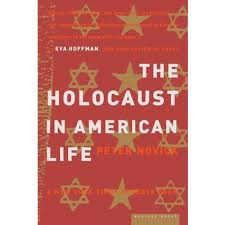 Inglés
InglésThe Holocaust in American Life
Peter NovickArrendar
Recíbelo en 24-48 horas arrendado
Cotizar Título
Confirmar Disponibilidad para Compra
Peter Novick’s The Holocaust in American Life is a thought-provoking analysis of how the memory of the Holocaust has been shaped, utilized, and transformed in the United States. Novick argues that the American perception of the Holocaust has evolved significantly over time, influenced by political, social, and cultural factors. He examines how the Holocaust was largely overlooked in the immediate post-war period, with Jewish communities and American society focusing more on assimilation and Cold War priorities. However, from the 1960s onward, the Holocaust gained increasing prominence in American discourse, becoming a central aspect of Jewish identity and a powerful moral and political tool. Novick critically explores how this shift was driven by various interest groups, media representations, and historical events, questioning whether the Holocaust has been instrumentalized for political purposes or even distorted in public memory.
In the second half of the book, Novick delves into the consequences of this widespread Holocaust consciousness, particularly how it has influenced American politics, education, and cultural identity. He discusses the establishment of Holocaust museums, the rise of Holocaust studies as an academic field, and the role of organizations that use Holocaust remembrance to advocate for contemporary social and political causes. While acknowledging the importance of remembering history, Novick warns against an overemphasis on the Holocaust that could lead to a sense of perpetual victimhood or a rigid moral framework that simplifies complex political realities. He challenges readers to reflect on the ways historical memory is constructed and asks whether the Holocaust’s role in American life has been shaped more by historical truth or by contemporary needs and agendas. Ultimately, the book offers a compelling critique of how collective memory operates and evolves within society.